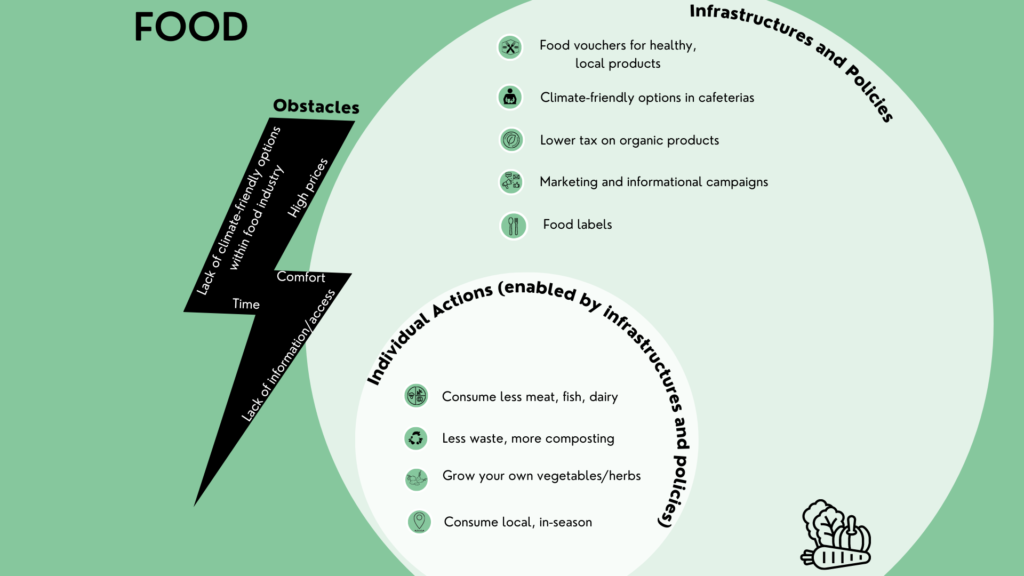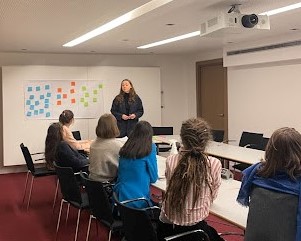By: Maëlys Lévy, Académie Notre Europe facilitator

“A quarter of greenhouse gas emissions in France come from our plates“, according to the French Agency for Ecological Transition.
What can I do to reduce my footprint in this area?
After realizing that our food is responsible for about 25% of greenhouse gases, we identified as a priority the reduction of meat consumption in favor of a more plant-based, local and seasonal diet. Other suggestions emerged, such as composting, growing a vegetable garden, having a henhouse, buying in bulk, consuming less dairy products and less fish, not wasting, favoring organic products and labels, and avoiding processed products.
What holds me back? (Obstacles)
The main obstacles to following these suggestions are the lack of time, knowledge and accessibility, as well as high costs, difficulties to change habits, and overpackaging in food industries.
What could help me change?
Different possibilities were underlined in order to help change our food habits: advertisement to raise awareness, educational campaigns encouraging better diets for children in school cafeterias, better marketing of organic products, less importance on some culinary traditions, lower VAT on organic products, or the establishment of a social security food aid according to income.
Finally, the two chosen policies were:
Introducing a vegetarian menu once a week in all public cafeterias across the EU.
Making reusable containers mandatory (with a financial incentive) in super markets and other food distribution places.
And the chosen communication strategy was :
To accompany the first policy proposal, a Sustainable Food Day (1) in order to inform the public about more plant-based, local and seasonal food.
These suggestions were the result of a rich and dynamic debate among all the members of the Académie Notre Europe, who had multiple proposals and explanations on the link between food and our carbon footprint.
(1) Sidenote: since 2019, the UN celebrates the International Day of Awareness of Food Loss and Waste, which makes “a clear call to action for public and private entities, from across the food system, and consumers to work together to cut food loss and waste (FLW) to mitigate climate change, and support food security and nutrition.”

